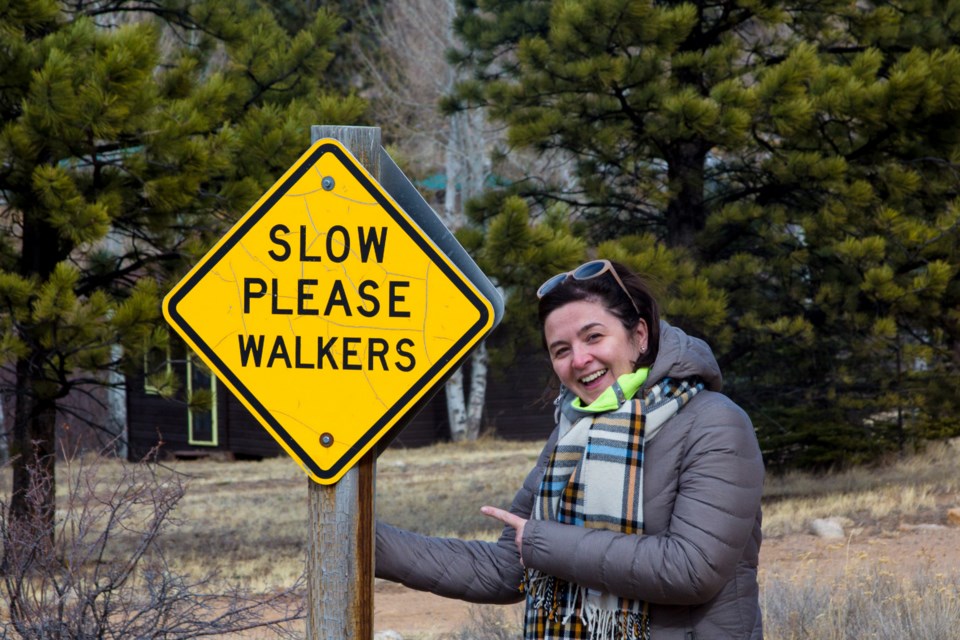Cars and trucks still rule the state’s cities and towns but Longmonter Ana Lucaci says the two-legged variety of transportation is slowly making inroads in how people get from place to place.
“It’s hard to modify the environment since you’ve already built houses and roads around it,” Lucaci said. “But you just don’t have to build something there … you connect neighborhoods with people with trails and sidewalks. You can make it easier to walk. After all, not everyone has a car and let’s face it … walking is good for us.”
After being hit by a truck in downtown Denver in 2015, Lucaci was told walking could help her damaged hip. She rediscovered the therapeutic and environmental benefits of walking and has become an advocate for walking safety in Longmont and Denver.
She is an owner of Walk2Connect Cooperative — which trains community members to be walking advocates — and founder of Made2Walk, which consults on pedestrian safety. Lucaci also is an alternate member of the city of Longmont’s Planning and Zoning Commission.
Lucaci has fought for better signage at intersections, wider sidewalks, better street lighting and more curb cuts, especially for the disabled.
Sometimes the problem is crosswalks that don’t give pedestrians enough time to cross the street, she said. “A lot of time, people just need a little more time,” Lucaci said.
Lucaci has worked with Longmont city planners on efforts to make the downtown area safer and easier to walk around. She said she also has worked with the city of Denver on several projects including Denver’s Safe Routes to School program, which encourages kids to walk to school.
The program encourages exercise while cutting childhood obesity, according to its website.
Lucaci holds a master’s in public health and is a 2017 alumni of The Walking College fellowship, which led to the development of Made2Walk. The Walking College is six months of remote learning instruction on how students can become walking advocates in their communities, according to its website.
A main focus is to increase pedestrian safety by pushing for better visibility at intersections, Lucaci said.
She is compiling case histories of people who have been hit and seriously injured by cars.
“A lot of people forget a car weighs a ton and they, in many ways, are killing machines if they are not handled properly,” she said.
Jose Negron said he was traumatized in 2017 when, as he and his partner were trying to cross the intersection at Lincoln Street and Maple Avenue in Denver, he was struck by the driver’s side mirror of a car turning into Lincoln, according to the Made2Walk website.
“I have never been back to the same area. For reasons out of my control, I do not feel comfortable visiting the same area,” Negron stated.
Lucaci said she and her family did not have a car while she grew up in Romania.
“We lived close to the train station, so when we wanted to get somewhere we walked or we walked to the train station,” she said.
But when she moved to Longmont in 2008, she got a car. She got used to driving and never considered walking as a main mode of transportation until she was hit in Denver.
“It changed my life,” Lucaci said.
She owns a car but uses it maybe once a week. Otherwise, she walks.
“You never really realized how much you miss by not walking,” Lucaci said. “You see your neighborhood for the first time, you see your neighbor’s house. It’s really eye-opening.”



